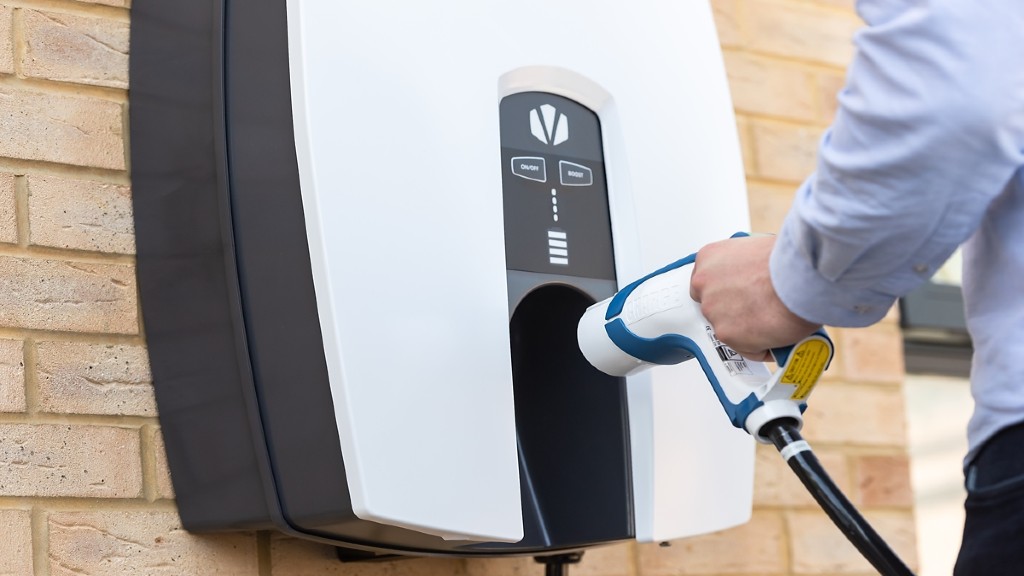
Indra has released early findings from its vehicle-to-home (V2H) electric vehicle charger trial as it continues to pioneer the future of domestic bidirectional EV charging.
The findings were unveiled on Wednesday 5 September 2024 by Indra’s Chief Technology Officer, John Fox, at the Cenex Expo 2024, the UK’s largest event focusing on the transition to net zero transport.
The Research and Development project is the largest V2H trial in the world and has seen more than 200 bidirectional chargers installed in UK homes. The multi-year project aims to explore how best V2H technology can be rolled out as a commercial product.
Amongst the results being shared for the first time is that by using Indra’s ground-breaking bidirectional chargers, trialists have so far collectively reduced their household electricity consumption during peak times by more than 100 MWh (1); this is enough to power an electric vehicle for approximately 430,000 miles (2).
Trialists achieved this by using energy from their electric vehicle’s battery to power their homes at peak times, and then subsequently recharging their cars’ batteries at off-peak times, when energy is cheaper and greener. Trialists with solar panels were also able to use the green energy generated by their solar panels.
If such reductions in peak energy use were scaled up across a wholly electrified UK bidirectional car fleet, this would significantly reduce the peak load on the grid and reduce CO2 emissions from the energy we use.
Indra also used the conference to share details of savings being made by trialists. Half (50%) anticipated total 12-month savings of between £400 - £799, a further 18% expected £800 to £1,199 in savings and 10% forecasted savings of more than this (3).
Reductions in cost have been particularly noticeable for those trialling the bidirectional charger in tandem with solar panels who receive Feed-In Tariffs or Smart Export Guarantee payments for electricity sold back to the grids. A number of tralists have experienced negative bills by earning money from their energy provider, particularly in sunnier months of the year.
Commenting on the results, John said:
“Everyone here at Indra is delighted to be leading this pioneering trial which is providing incredibly valuable data and insights, which we will use to deliver a valuable and enjoyable experience to users as we bring this technology to the masses.
“As expected, we’ve already shifted a significant amount of energy, supporting the grid and reducing carbon and this is only going to keep increasing as the trial continues. We’ve had some fantastic feedback from trialists on the savings they have made on their energy bills, and I can say from personal experience the savings are very much real - I’m around the £800 saving per year mark, with no solar panels at my home. This real-world evidence is vital in supporting our mission to bring the benefits of bidirectional EV charging to as large a number of people as possible.”
Through the trial, Indra has been collecting insights into how consumers interact with the technology. These are already being harnessed by the company in the design of its next-generation bidirectional EV chargers.
Seeking to ensure that this technology is accessible to all, Indra is working on the trial with Motability Operations, the company that runs the Motability Scheme where disabled people can lease an affordable and accessible vehicle. Customers on the Motability Scheme have been included on the trial and their unique experiences and feedback have been captured.
As well as running the world’s largest V2H EV charger trial, Indra is also involved in other projects seeking to bring bidirectional EV charging to the mainstream.
Working with energy provider EDF Energy on a project supported by the Department for Energy Security and Net Zero, Indra is testing the use of its bidirectional charger in tandem with an innovative tariff from EDF Energy (4).
The multi-million pound project, which kicked off in March 2024, sees Indra’s bidirectional chargers being paired with a specially-created EDF export electricity tariff in order to see how customers utilise bidirectional EV charging.
Find out more about how Indra is pioneering bidirectional charging.
Notes:
(1 ) Peak times are defined here as 4pm-10pm.
(2) Assumes a Nissan LEAF (the vehicle used by most V2H trialists) with a 39kWh battery and a Combined WLTP (Worldwide Harmonized Light Vehicles Test Procedure) and a range of 168 miles.
(3) Figures include those who provided a predicted saving but excludes 18% who offered a ‘Don’t know’ response.
(4) Project FLASH (Flexibility Assets and Smart Homes) aims to demonstrate the value that innovative consumer demand-side response propositions can bring to the UK by 2030. The Project will contribute to the evidence base for how the residential flexibility market can be grown to inform future policy and regulatory decisions; supporting the delivery of a smart and flexible energy system.
Project Flash is part of the Department for Energy Security & Net Zero's Alternative Energy Markets Innovation Programme, and backed by £1.3m of funding from the Net Zero Innovation Portfolio (NZIP). NZIP is a £1 billion fund for low-carbon technologies and systems and aims to decrease the costs of decarbonisation helping enable the UK to end its contribution to climate change.